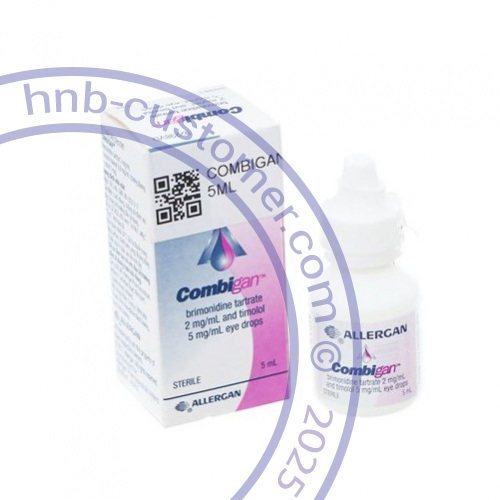Brimonidine and timolol ophthalmic
What is brimonidine and timolol ophthalmic?
Brimonidine reduces the amount of fluid in the eye, which decreases pressure inside the eye.
Timolol is a beta-blocker that also reduces pressure inside the eye.
Brimonidine and timolol ophthalmic (for the eyes) is used to treat open-angle glaucoma or ocular hypertension (high pressure inside the eye).
Warnings
You should not use brimonidine and timolol ophthalmic if you have a history of asthma or chronic obstructive pulmonary disease (COPD), or a serious heart condition such as "AV block," severe heart failure, or slow heartbeats that have caused you to faint.
Brimonidine and timolol ophthalmic should not be given to a child younger than 2 years old.
Before taking this medicine
You should not use brimonidine and timolol ophthalmic if you are allergic to it, or if you have:
a history of asthma or chronic obstructive pulmonary disease (COPD); or
a serious heart condition such as "AV block," severe heart failure, or slow heartbeats that have caused you to faint.
To make sure brimonidine and timolol ophthalmic is safe for you, tell your doctor if you have:
- congestive heart failure, coronary artery disease, history of stroke or blood clot;
- high or low blood pressure, circulation problems (such as Raynaud's syndrome);
- depression;
- diabetes (using brimonidine and timolol ophthalmic may make it harder for you to tell when you have low blood sugar);
- a thyroid disorder;
- any allergies;
- myasthenia gravis; or
- a history of glaucoma or increased pressure inside your eye.
FDA pregnancy category C. It is not known whether brimonidine and timolol ophthalmic will harm an unborn baby. Tell your doctor if you are pregnant or plan to become pregnant while using this medication.
Timolol ophthalmic can pass into breast milk and may harm a nursing baby. You should not breast-feed while using brimonidine and timolol ophthalmic.
Do not give this medicine to a child without medical advice.
How should I take brimonidine and timolol ophthalmic?
Follow all directions on your prescription label. Do not use this medicine in larger or smaller amounts or for longer than recommended.
Do not use this medication while wearing contact lenses. Brimonidine and timolol ophthalmic may contain a preservative that can discolor soft contact lenses. Wait at least 15 minutes after using this medicine before putting in your contact lenses.
Wash your hands before using the eye drops.
To apply the eye drops:
- Tilt your head back slightly and pull down your lower eyelid to create a small pocket. Hold the dropper above the eye with the tip down. Look up and away from the dropper and squeeze out a drop.
- Close your eyes for 2 or 3 minutes with your head tipped down, without blinking or squinting. Gently press your finger to the inside corner of the eye for about 1 minute, to keep the liquid from draining into your tear duct.
- Use only the number of drops your doctor has prescribed. If you use more than one drop, wait about 5 minutes between drops.
- Wait at least 10 minutes before using any other eye drops your doctor has prescribed.
- Do not touch the tip of the eye dropper or place it directly on your eye. A contaminated dropper can infect your eye, which could lead to serious vision problems.
- Do not use the eye drops if the liquid has changed colors or has particles in it. Call your pharmacist for new medicine.
- Tell your doctor right away if you have any eye injury or infection, or if you need to have any type of surgery, especially eye surgery.
- Store at room temperature away from moisture and heat. Do not freeze. Keep the bottle tightly closed when not in use.
What should I avoid while taking brimonidine and timolol ophthalmic?
This medication may impair your thinking or reactions. Be careful if you drive or do anything that requires you to be alert.
Do not use other eye medications unless your doctor tells you to.
Brimonidine and timolol ophthalmic side effects
Get emergency medical help if you have any of these signs of an allergic reaction: hives; difficult breathing; swelling of your face, lips, tongue, or throat.
Brimonidine and timolol ophthalmic may cause serious side effects. Call your doctor at once if you have:
- slow or uneven heart rate;
- pounding heartbeats or fluttering in your chest;
- shallow breathing, feeling like you might pass out;
- severe swelling, redness, or discomfort in or around your eye;
- eye pain or increased watering; or
- numbness or tingly feeling in your hands or feet.
Common side effects of brimonidine and timolol ophthalmic may include:
- drowsiness, tired feeling;
- mild itching, redness, or irritation of your eyes; or
- mild stinging or burning when using the eye drops.
What other drugs will affect brimonidine and timolol ophthalmic?
Using brimonidine and timolol ophthalmic with other drugs that make you sleepy or slow your breathing can increase these effects. Ask your doctor before using brimonidine and timolol ophthalmic with a sleeping pill, narcotic pain medicine, muscle relaxer, or medicine for anxiety, depression, or seizures.
Tell your doctor about all medicines you use, and those you start or stop using during your treatment with brimonidine and timolol ophthalmic, especially:
- digoxin, digitalis;
- reserpine;
- an antidepressant--amitriptyline, bupropion, clomipramine, desipramine, doxepin, duloxetine, fluoxetine, imipramine, nortriptyline, paroxetine;
- an MAO inhibitor--isocarboxazid, linezolid, phenelzine, rasagiline, selegiline, tranylcypromine;
- a beta blocker--atenolol, carvedilol, labetalol, metoprolol, nadolol, nebivolol, propranolol, sotalol, and others; or
- heart or blood pressure medicine--amlodipine, diltiazem, methyldopa, nifedipine, quinidine, verapamil, and others.
This list is not complete. Other drugs may interact with brimonidine and timolol ophthalmic, including prescription and over-the-counter medicines, vitamins, and herbal products. Not all possible interactions are listed in this medication guide.





